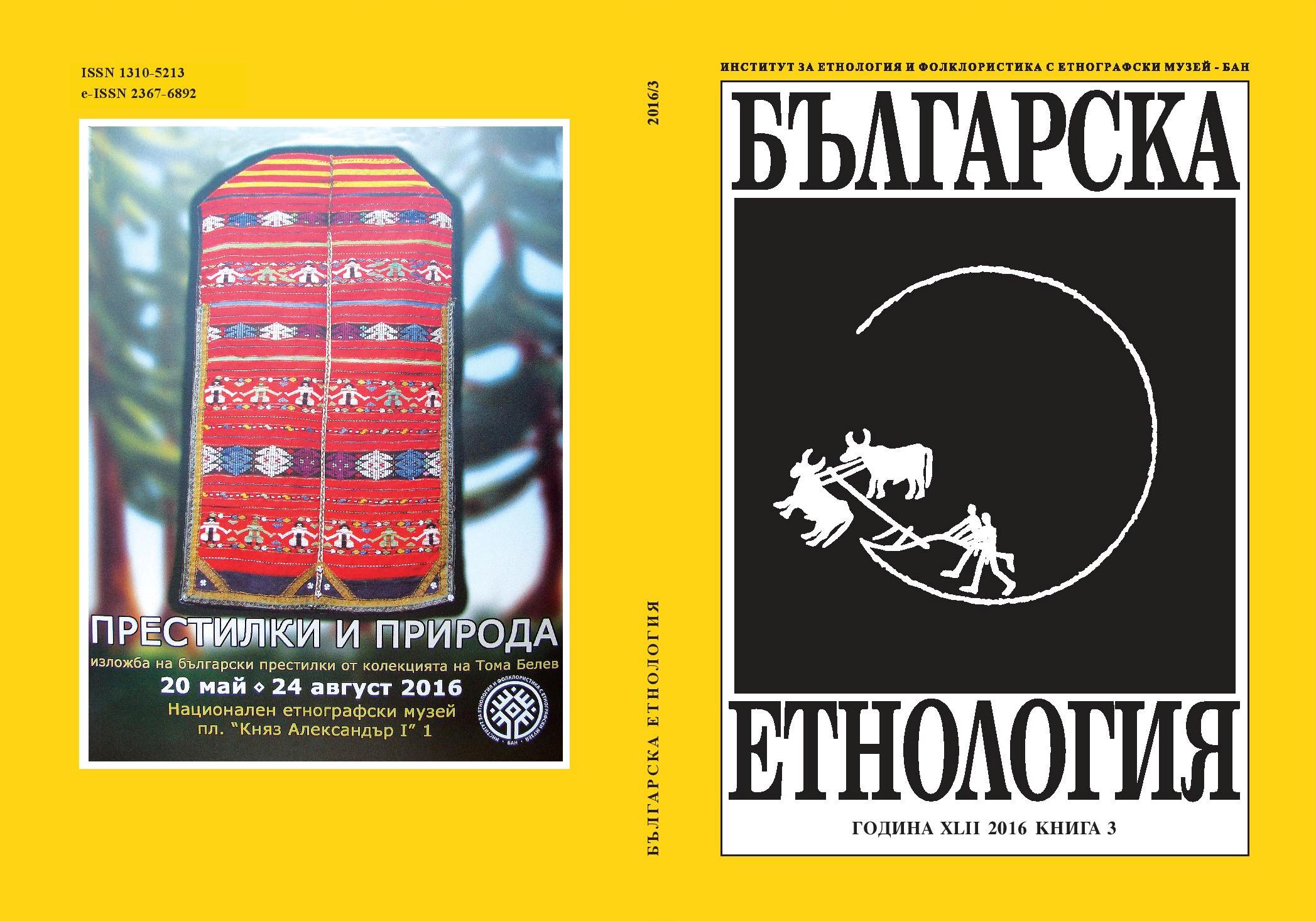
We kindly inform you that, as long as the subject affiliation of our 300.000+ articles is in progress, you might get unsufficient or no results on your third level or second level search. In this case, please broaden your search criteria.


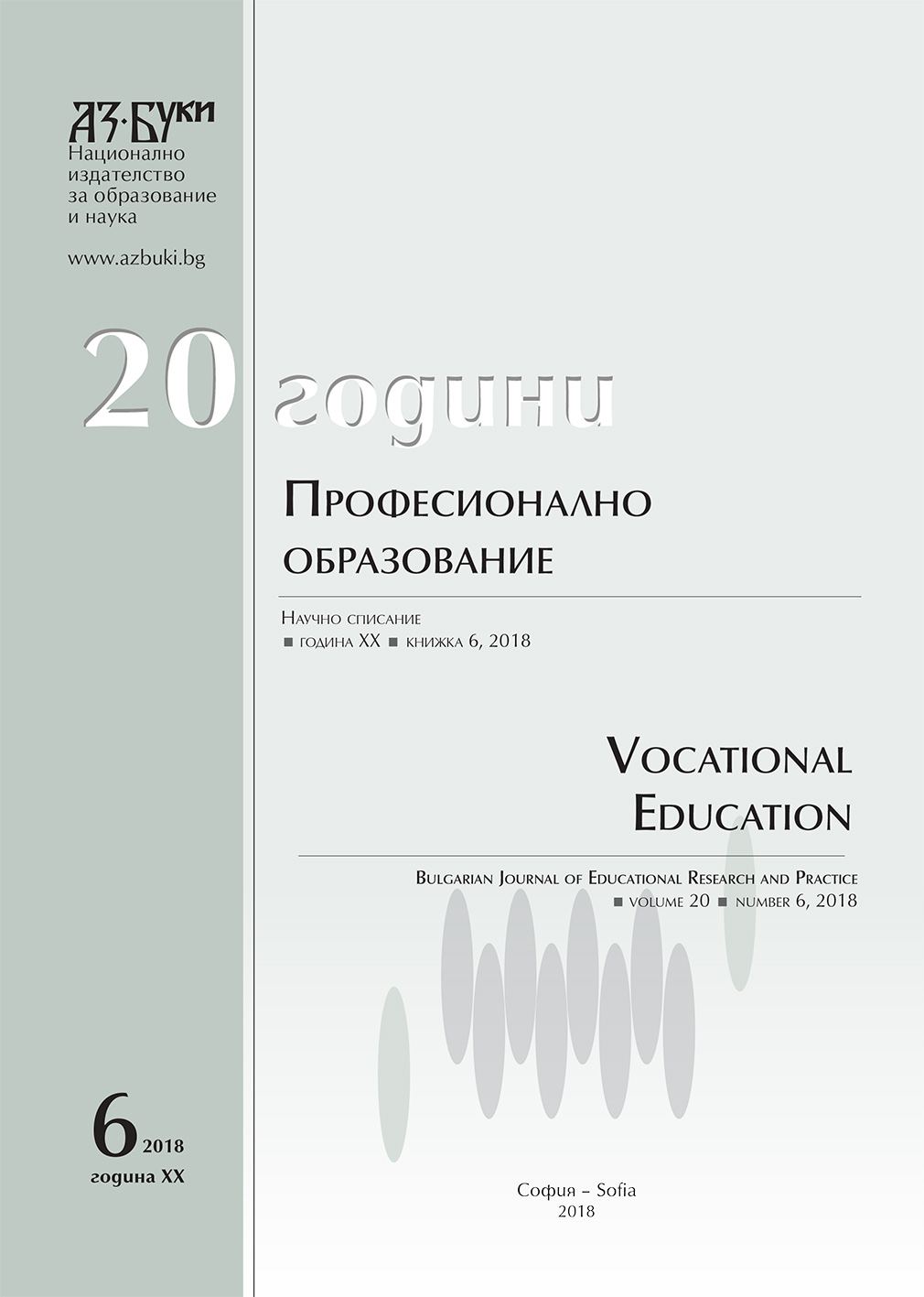
Based on a brief analysis of Bulgaria’s benchmarks under the EU’s “Education and Training 2020” strategic framework, the article presents the state and trends of the adult learning sector and some new aspects in order to make progress. Discussed is the participation of the population aged 25 – 64 in formal or non-formal education and training, the situation of early school leavers is analysed. Based on the data analysed, it is made the conclusion that the adult learning sector in 2017 state is improving but the positive changes achieved are not large enough to ensure that the national targets set for the most important indicators – participation of adults in education and training and the number of early school leavers.
More...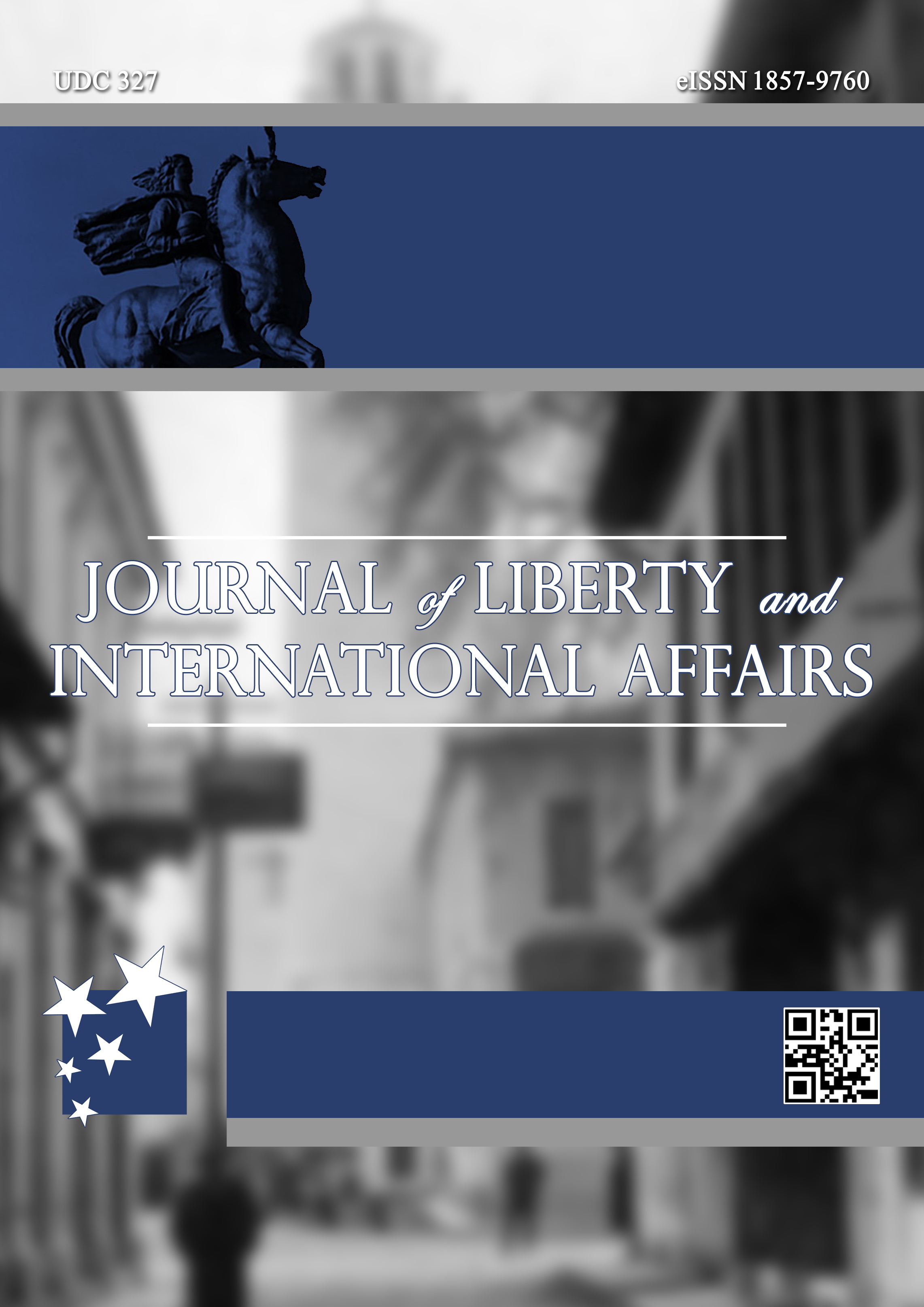
The article is devoted to a problem of social work in Ukraine – the European Union help to internally displaced persons as a special category of citizens which appeared in Ukraine because of military conflict on Donbass, which is provided through educational work with social workers in new social, economical and political conditions. The aim of the article is to represent theoretical basis and methods of organization of educational work with social workers in the field of informative and explanatory work with internally displaced persons by the means of multidisciplinary brigades coming to the places of their compact residence. The authors of the article are the first ones to substantiate and explain scientific approaches to such kind of educational work (competent, family-centered, androgynous, activity, multidisciplinary, ‘help for self-help’) and taking it as basis explain content, forms and methods of social workers.
More...
The article analyses the contemporary role of the elderly in a village community through the lens of the local notions and practices related to “Islam“ and“communism“. These two ideological commitments can be found only among the elderly people. The members of the younger generations show respect but also stay at significant distance from religious practice. They unanimously consider communism as an ideology that is fading away. In spite of this lack of engagement, over the past three decades, the tensions between the local expressions of Islam and communism, as well as their numerous entanglements, have played a key role in shaping social relationships, moral reasoning and community cohesion in the village. The article is based on ethnographic fieldwork conducted in a village located in the southern part of the central Rhodope Mountains.
More...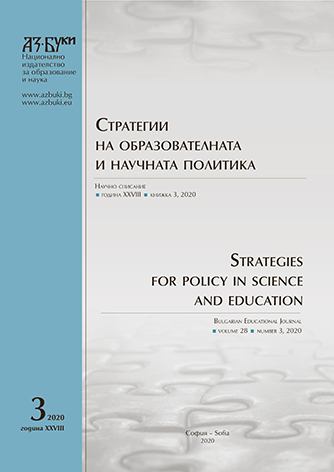
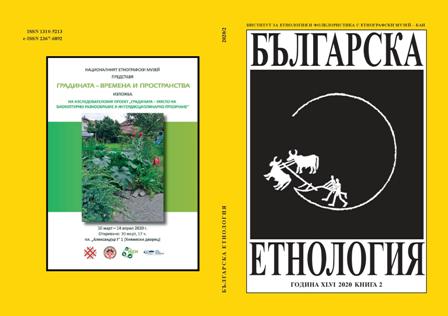
With its fifth edition in 2019, the festival ‘Na Megdana na Drugata Bulgaria’ (At the Public Square and Gathering Point of the Other Bulgaria) establishes itself as one of the main events for Bulgarian emigrants in Europe. It gathers folklore enthusiasts and besides a dancing stage, it is a ground for new friendships, meetings, and exchange of expertise. The article examines the festival as a place of contact of informal migration-based groups of interest and as a trigger for developing an imagined community around symbols such as origin, clothes, music, dance and food. The ‘megdan’ is considered a community centre existing mainly in people’s mind but not as a geographic location. The article searches for the link between the event and the ways of preserving and transmitting cultural heritage in migration. The study was conducted in three stages: a preliminary online survey; fieldwork in the period May 10 – 12, 2019 in La Nucia, Spain; an additional digital data gathering.
More...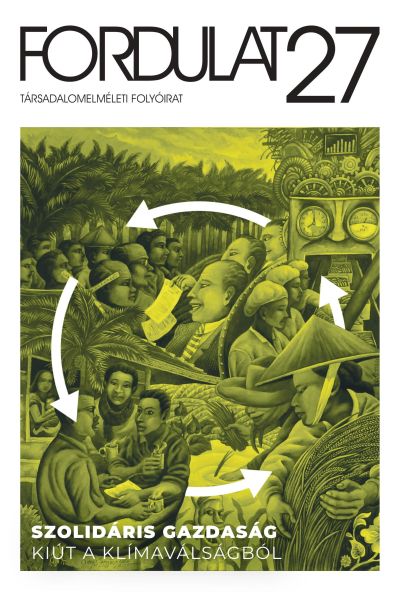
The starting point of our paper is that the capitalist socioeconomic system treats life-reproducing reproductive work and one of its forms, care as free resources, as individual responsibilities, placing their costs on families and households, especially women. The low level of state engagement and the emergence of for-profit market services further exacerbate the crisis of care as well as inequalities in care. In the paper, we first introduce grassroots cooperatives and initiatives in the field of elderly care and child care that revalue and reorganize care in a participatory, democratic and solidarity-based way in order to strengthen carers as well as those with care needs, and to improve the quality of their lives. These include workers’ (carers’) cooperatives, users’ cooperatives (cooperatives of people with care needs), multistakeholder cooperatives and mothers’ centers, the communities of women with small children. We then introduce political movements struggling for the systemic transformation of reproductive work and care. We argue that the institutions of care should be owned and controlled by communities, while the state should continue to play a coordinating, funding and regulatory role in meeting needs and recognizing care work.
More...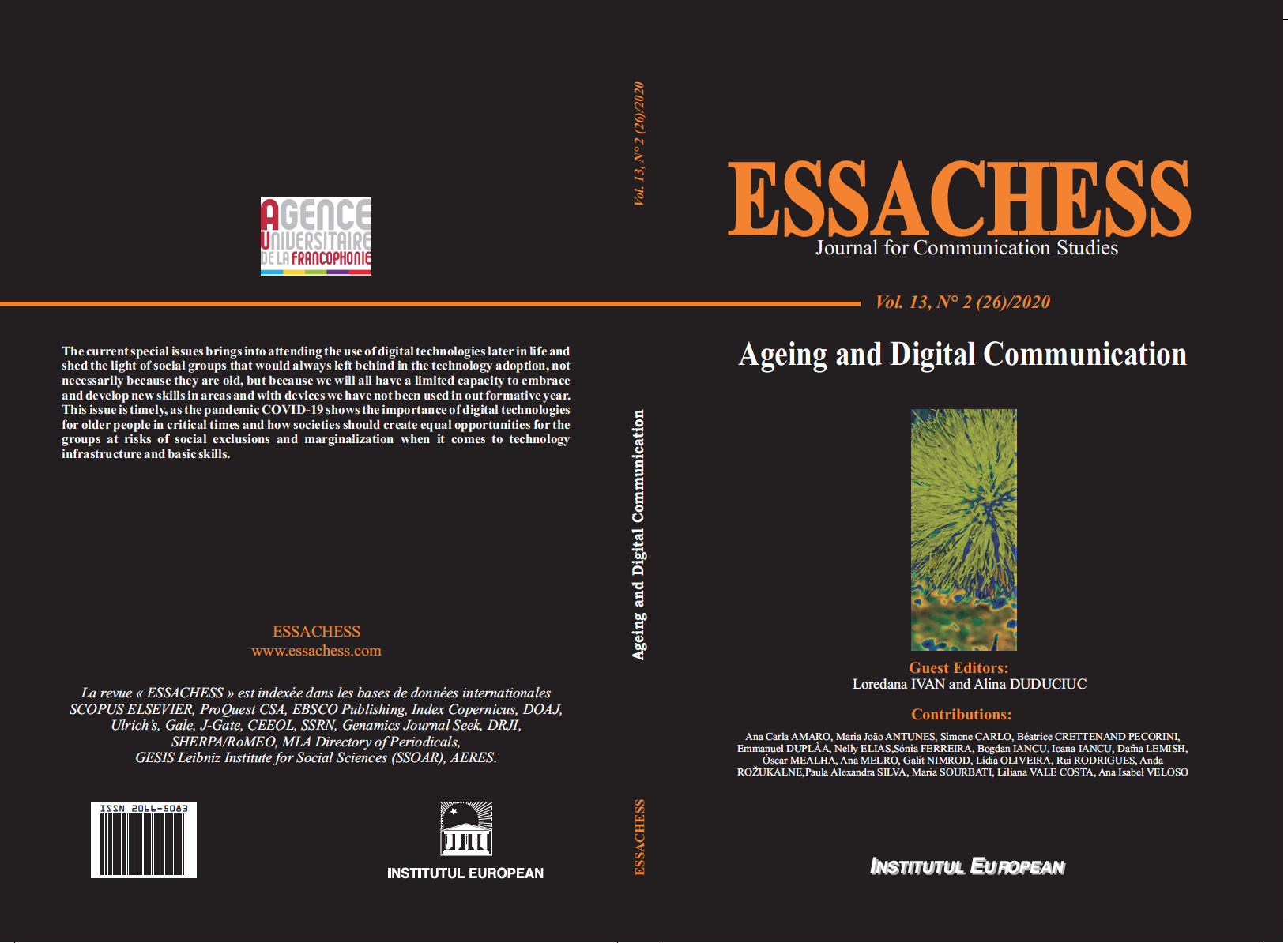
In the context of constant population aging, digital technologies are required especially for communication and geriatric care. However, before a large-scale deployment could be implemented, the general technological acceptance level should be assessed. The paper aims to descriptively analyze the perception of aging adults on mobile technology. Based on Technology Acceptance Model (TAM), the variables considered are emotional attachment on technology, actual use, perceived ease of use, perceived usefulness, and behavioral intentions. Methodologically, a set of semi-structured interviews have been conducted. The results show that although individuals love their mobile devices and although they perceive them as being useful, the devices are not easy to be used and there are numerous concerns regarding technology. Paradoxically, while they claim the like owning smart devices, they consider them too complex and intrusive.
More...
Academic interests on the impact of media on individuals’ lives often highlight differences in knowledge across generations. The spread of disinformation and its potential impact on societies has added a new dimension to this process - the need to continuously improve media and information literacy (MIL). Thus, the older generations face greater challenges, as they need to acquire new skills more rapidly and on a larger scale. This article analyses interrelations between encouragement measures (implemented by media policy makers) and media literacy perception of middle-aged and older population in Latvia (aged 55 to 75). The research employs data of two national representative surveys (May 2019, 1017 respondents; August 2019, 1005 respondents) that include data on respondents’ perception of MIL and test their media literacy skills. The theoretical background of this paper is supported by literature that discusses age and generations in context of media and technology use (Aroldo, 2014), and the Ideological model of literacy (Street, 1984; 1994). Data shows that a higher proportion of middle-aged and older respondents, compared to other age groups, are not interested in MIL issues and evaluate their MIL competences as rather low, but in the everyday practice their ability to recognize and evaluate information is equivalent to that of other age groups.
More...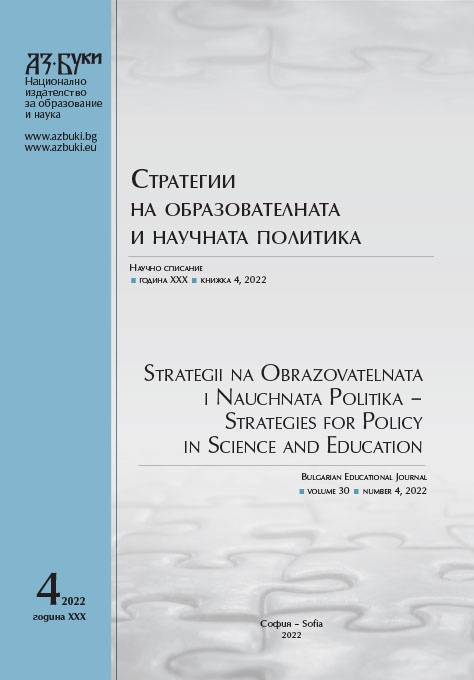
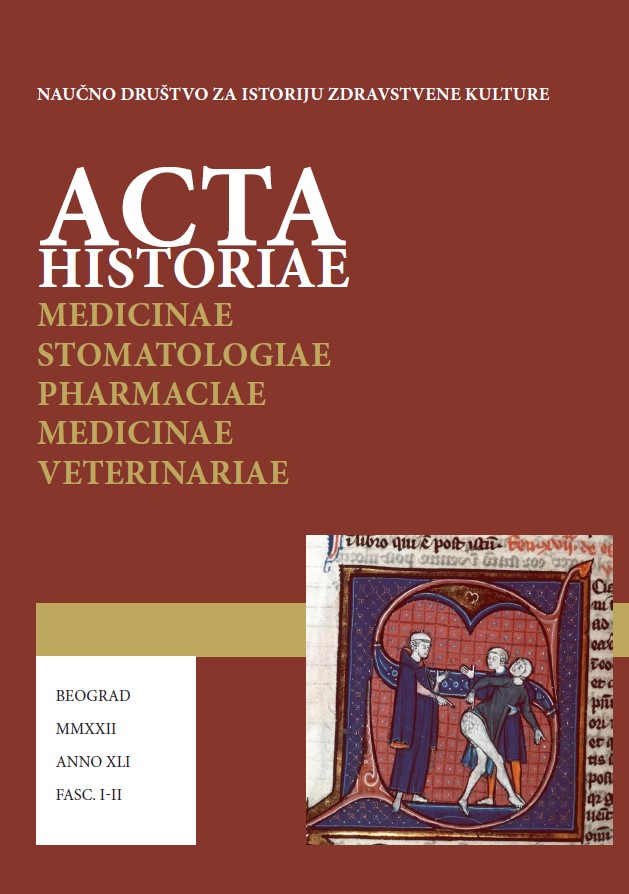
Palliative patients (patients suffering from an incurable disease that significantly shortens life expectancy) represent one of the most vulnerable social groups among users of the healthcare system. Due to certain poor life prognoses, comorbidities and the severity of the overall clinical picture, the care of this type of patient requires an interdisciplinary approach and the expertise of several specialists at the same time. In this sense, palliative care includes, on the one hand, medical services aimed at alleviating the suffering of palliative patients and improving their quality of life, and on the other hand, psychological support for their families in order to strengthen their resilience. Unfortunately, in periods of instability of the health system, such as the one marked by the COVID-19 pandemic, palliative care services are among those that become subject to systemic restrictions in the field of health services. The paper examines the social position of palliative care patients during the COVID-19 pandemic and the challenges they and their families have encountered.
More...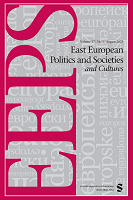
This paper investigates attitudes towards the welfare state measured as government responsibility towards the standard of living of the unemployed and the old. The article focuses on the differences between post-communist countries and the rest of Europe, contextualised using the self-interest theory, specifically economic strain. Data on thirty one European countries gleaned from the European Social Survey collected in 2008 and 2016 are analysed using multilevel methods. The findings show that even though citizens in post-communist countries are purportedly more in favour of government intervention in regard to the welfare state, perceptible differences emerge based on individual characteristics, namely economic strain, combined with whether the respondent lives in a post-communist country. The cross-national differences in welfare support between post-communist countries and the rest of Europe are largely driven by differences in economic strain, with citizens in post-communist countries that struggle financially exhibiting higher support for welfare state provisions in comparison to their peers in countries without a communist legacy.
More...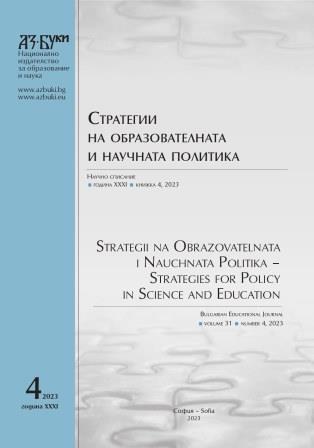
At the beginning of the XXI century, the understanding of transformation encompasses not only organizational and structural processes, but also processes regarding the proficiency of those who implement them. In the Armed Forces system, proficiency can be considered in several aspects – doctrinal, managerial, methodological, psychological, pedagogical, technical. Since transformation is not a single act, but an ongoing function of the National Security System, it is necessary to emphasize the importance of the continuity of the process of acquiring knowledge for today's immediate performers as they grow and assume positions of responsibility. The purpose of this paper is to present arguments for the need to transform the proficiency (knowledge and capabilities) of transformational process leaders – at operational and tactical levels, to navigate and skillfully apply modern technological innovations in favour of the thinking and preparation of the governing bodies and in the Land Forces training system.
More...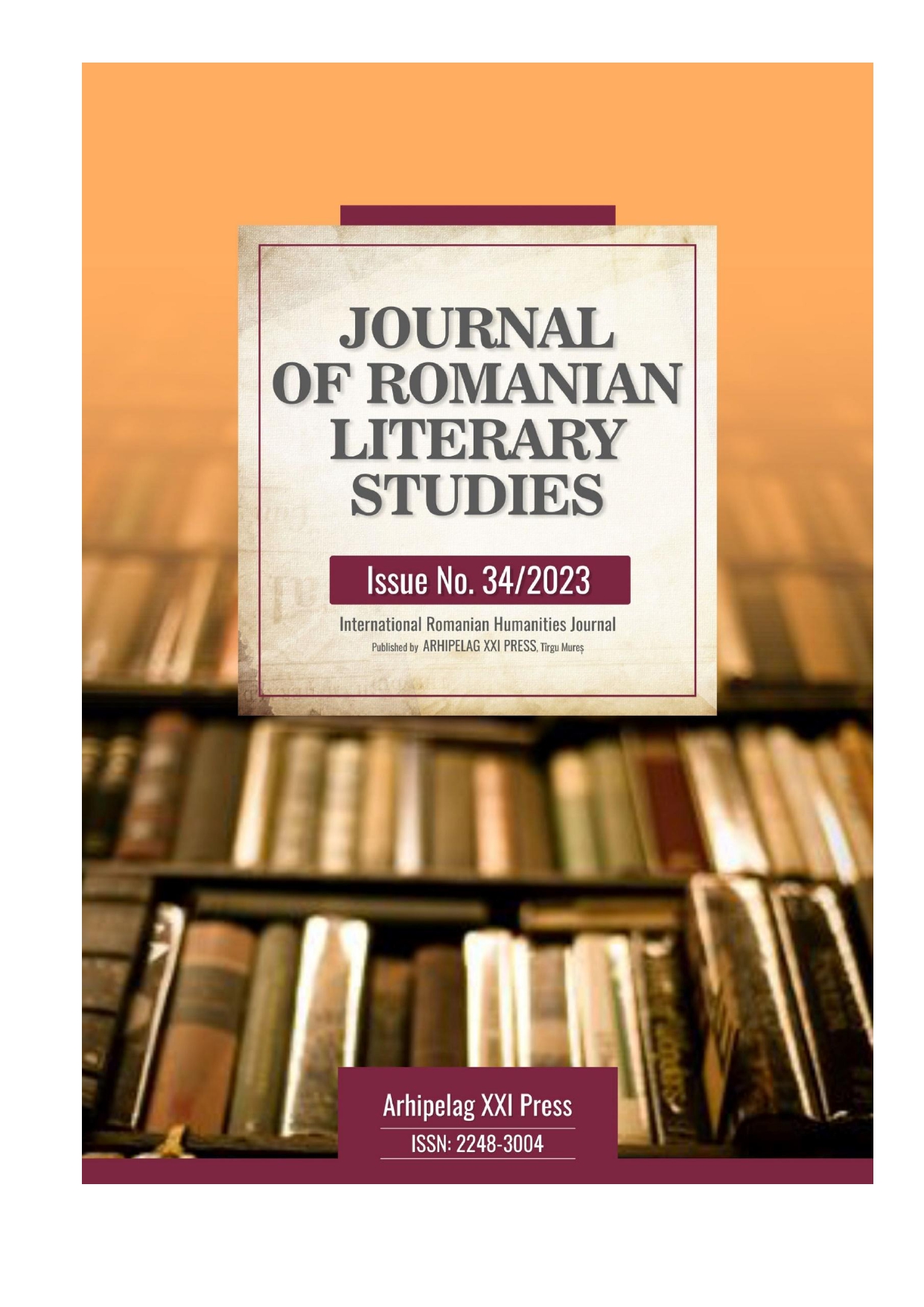
Old age is the last stage of life and with the transition from middle age comes the need for adjustments in behavior and thinking in order to maintain good physical and mental health. It is important for older people to have adequate coping strategies to minimize the emotional consequences of such stressful situations and to adapt adequately to them. It should be remembered that aging itself is a process of physical, social and psychological changes and thus it is impetuously necessary for the elderly to have adequate strategies to minimize emotional consequences such as stressful situations and to adapt to them.
More...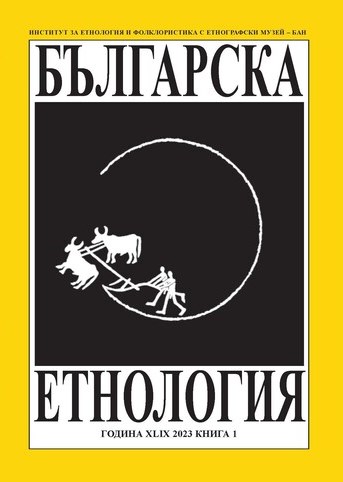

This article analyses the efforts for establishing and operating the first elders’ care institutionsin Albania during the monarchical regime of Ahmet Zogu and the fascist occupation. Based on archival documents, a detailed description is given of the Albanian authorities' efforts to found a care institution for the elderly, of the taxes collected for this purpose, of the negotiations between the central and the local institutions during the process, of the justifications encouraging the payments of those taxes made by the state representatives. In addition, a comparative analysis is offered of the main dimensions of social care with the social care conceptualized and provided by the Albanian state. The concept of social care is broader than that only for the elderly, but in this article, only social care for the elderly is considered. The basic concept of the Albanian state is that the main provider of elders’ social care is the family. Only a few individuals, who do not have families or stable incomes, should be taken care of by the state institutions and their care would be paid through special taxes.
More...
The study is in the field of зsychogerontology/psychogeriatrics, but it is in touch also with a range of humanitarian sciences. The study on self-evaluations, values and mental health has been cross-sectional and longitudinal. 708 persons (341 men and 267 women) aged 70 to 98 years, constituting a 20% random sample of the population 70 and over from 45 villages near Sofia were studied in 1971–1972. A test of self-evaluation of the personality and its social coherence is used along with nine psychological cognitive tests, an interview and a comprehensive medical and psychiatric examination. The group studied is homogeneous in ethnic, social-cultural and migration respect. In addition to the cross-sectional appraisal, a longitudinal assessment has been performed in intervals of 3, 5, 10, and a maximum of 16 years. Finally, an attempt at time-lag examination of old people 70 and over from two of the previous villages was performed in 2008, i.e. 36 years after the initial study – in different social and political conditions.
More...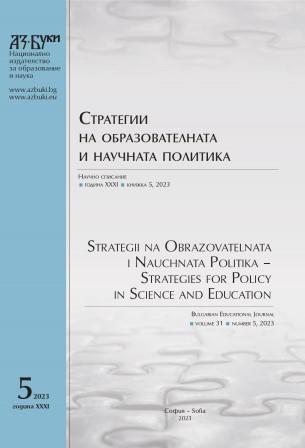
The expansion of the financial intermediation and the diversification of the financial products for consumers generates enormous academic interest in the field of the financial education. The exponential development of the technology in the financial services also encourages the theory and policy to promote financial education. In this environment, consumers can hardly catch up with the expertise of the financial institutions. Thus, the information asymmetry widens, leading to significant adverse consequences for both consumers (indebtedness, financial exclusion, and financial losses) and financial intermediation (reduction of the client base, shocks on demand). The purpose of this study is, by analyzing the development of the personal finance theory, the regulatory framework and policy, to identify the issues and the risks in the context of the contemporary challenges. The article reveals the specifics of the students’ personal finances, which also defines the educational approaches and emphases to overcome the risks of low-quality education. Defined are the main guidelines of the training aimed at preventing excessive indebtedness at this early age, acquiring skills for choosing the most suitable financial products, diversifying personal income and promoting investment activity.
More...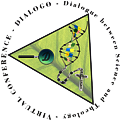
This article examines the subtle interconnection between the sanctity of life and individual autonomy within the context of assisted dying, as seen through the lens of Orthodox Christianity. It seeks to unravel the complex theological, ethical, and pastoral considerations that inform the Orthodox stance on end-of-life issues, particularly the nuanced understanding of suffering, death, and the redemptive potential encapsulated within them. Orthodox theology, with its profound veneration for life as a divine gift, offers a counter-narrative to contemporary discourses that often prioritize personal autonomy and the alleviation of suffering above all. This tradition emphasizes the transformative power of suffering when united with Christ’s own redemptive suffering, proposing a vision of end-of-life care that is rooted in compassion, dignity, and hope for resurrection. The exploration begins with a historical and theological examination of the Orthodox perspective on life’s sanctity, engaging with the teachings of Church Fathers and contemporary theological and bioethical discussions. It highlights the foundational concepts of Orthodox anthropology, which perceives human beings as an indivisible unity of body and soul, reflecting the imago Dei. This anthropological understanding challenges reductionist views of human existence and informs the Orthodox approach to medical ethics, palliative care, and the spiritual accompaniment of the dying. By critically evaluating arguments for and against assisted dying, the article presents a balanced discourse that respects the depth of individual suffering while upholding the intrinsic value of life. It argues that Orthodox Christianity, through its rich theological heritage and pastoral practice, provides a compassionate and ethically nuanced framework for navigating the moral complexities of assisted dying. This framework advocates for an end-of-life care that honors the fullness of the human person, supports the spiritual journey toward eternal life, and fosters a communal embrace of life’s sacred threshold, offering a dignified passage that aligns with the faith’s deepest convictions about human destiny and divine grace.
More...